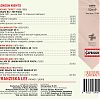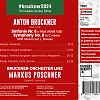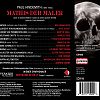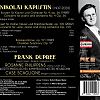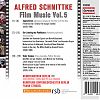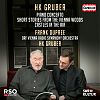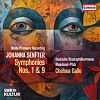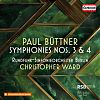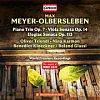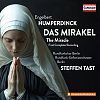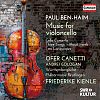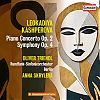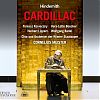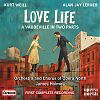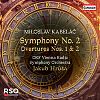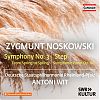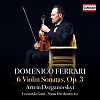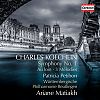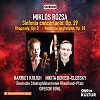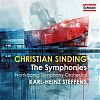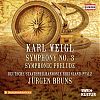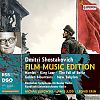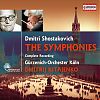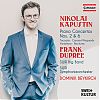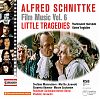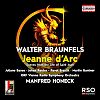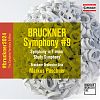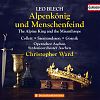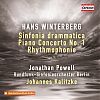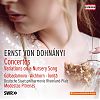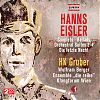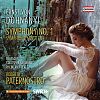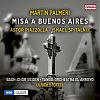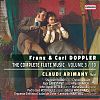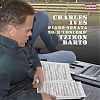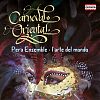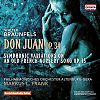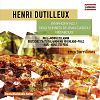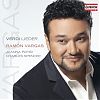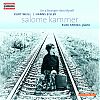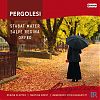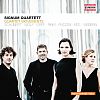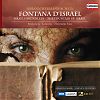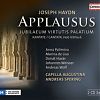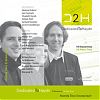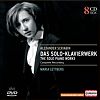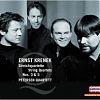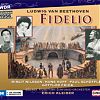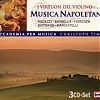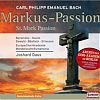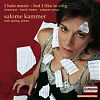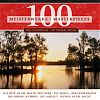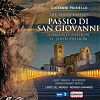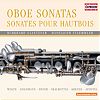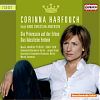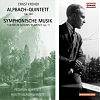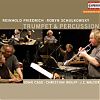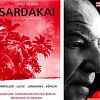cd

Premiere Portraits: Franziska Lee
Franziska Lee, piano
Franziska Lee has made a name for herself as an exceptional pianist capable of eliciting an orchestral palette of colours from the piano. Following her debut CD featuring an exclusively 20th-century French programme (Capriccio C3006), Lee has devoted her second recording to British composers of the same period. Together they tell a story of their time, from Britten’s exuberant Holiday Diary, a joyful interlude between the wars, to Tippett’s escapist Piano Sonata No. 1, written on the eve of the Second World War. With effortless virtuosity and musical insight Lee shines a light on a lesser-known corner of the piano repertoire.
Hörprobe
Weitere Bilder

#bruckner24 Symphony #8 (1890)
Bruckner Orchester Linz - Markus Poschner
This Complete Versions Edition includes all versions published or to be published under the auspices of the
Austrian National Library in the Neue Anton Bruckner Gesamtausgabe
(New Anton Bruckner Collected Works Edition).
Anton Bruckner burst out of the confines of the cathedral using that most secular of musical forms, the symphony. The creator of some of the 19th century’s greatest orchestral music, Bruckner cut a singular figure among his contemporaries. This new complete Bruckner Symphonies edition from Capriccio reassesses these enduringly enigmatic and complex works. Presented by the Bruckner Orchestra Linz and the ORF Vienna Radio Symphony Orchestra, and featuring all 19 available versions, the cycle is scheduled for completion in 2024, Bruckner’s 200th birthday. The second release, of Symphony No. 8 (1890 version) is performed by Bruckner Orchestra Linz conducted by Markus Poschner.
Hörprobe
Weitere Bilder

HINDEMITH: MATHIS DER MALER
Slowakischer Philharmonischer Chor · Wiener Symphoniker · Bertrand de Billy
MATHIS DER MALER
Oper in sieben Bildern / Opera in seven scenes (1938)
MATHIS, Hofmaler des Erzbischofs: Wolfgang Koch
ALBRECHT VON BRANDENBURG,
Kardinal und Erzbischof von Mainz: Kurt Streit
LORENZ VON POMMERSFELDEN, Domdechant: Martin Snell
WOLFGANG CAPITO, Rat des Kardinals: Charles Reid
RIEDINGER, Ein reicher Mainzer Bürger: Franz Grundheber
URSULA, seine Tochter: Manuela Uhl
HANS SCHWALB, ein Bauernführer: Raymond Very
REGINA, seine Tochter: Katerina Tretyakova
SYLVESTER VON SCHAUMBURG, Offizier: Oliver Ringelhahn
TRUCHSESS VON WALDBURG, Heeresbefehlshaber: Ben Connor
GRÄFIN HELFENSTEIN: Magdalena Anna Hofmann
DER PFEIFER DES GRAFEN: Andrew Owens
Hörprobe
Weitere Bilder

NIKOLAI KAPUSTIN
Frank Dupree · Rosanne Philippens · Meinhard Jenne · Württembergisches Kammerorchester · Case Scaglione
Drawing parallels to another famous composer of symphonic jazz, Kapustin is occasionally considered a ‘Russian in Gershwin’s clothing’. Most of his compositions are influenced by jazz and expertly combine jazz elements with those of the tradition from Bach to Prokofiev and Stravinsky. The aesthetic diversity with which classical garb and the stylistic devices of jazz are amalgamated in Kapustin’s output could be taken as the byword for all three compositions included on this recording. Only late – perhaps too late for Kapustin – did his catalogue of works reach greater international recognition. People who knew him, describe him as a man who never desired the limelight. Apparently, he was happiest when he was able to compose work after work in his apartment, far away from the public eye.
Youtube
Weitere Bilder

Alfred Schnittke: Film Music Vol. 5
Rundfunkchor Berlin · Rundfunk-Sinfonieorchester Berlin · Frank Strobel
Alfred Schnittke’s film music encapsulates almost everything that characterises the Russian composer’s compositional style. A self-described polystylist, he began writing for film in the 1960s, penning 66 film scores between 1962 and 1984 for Soviet film companies. His method of drawing on the past was rejected by the avant-garde but embraced by filmgoers and – after he invited the film music expert Frank Strobel to condense his film scores into suites – concertgoers too. Volume five in this series of Schnittke’s film music presents music from the films Tagessterne (‘The Stars of the day’), Der Liebling des Publikums (‘The Favorite') and Vater Sergius (‘Father Sergius’), recorded with Strobel and the Berlin Radio Symphony Orchestra.
SCHNITTKE – Film Music Edition Vol. 1-4
4CD-Set · C7196


